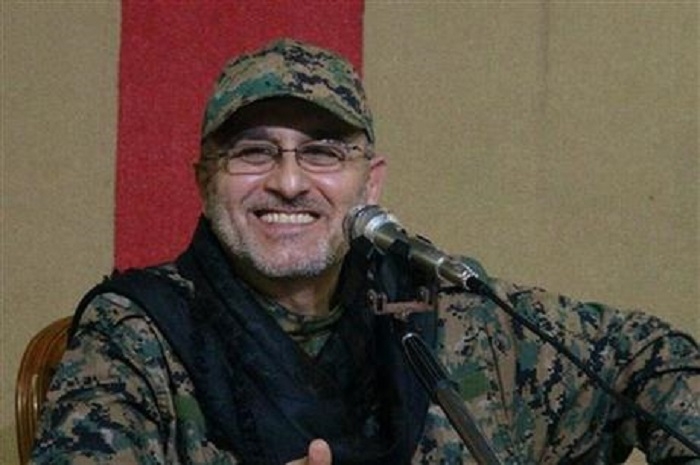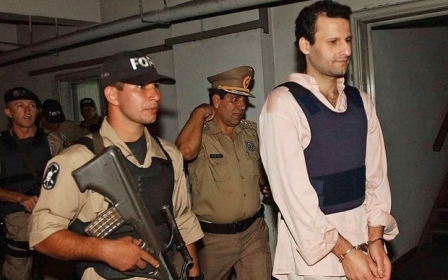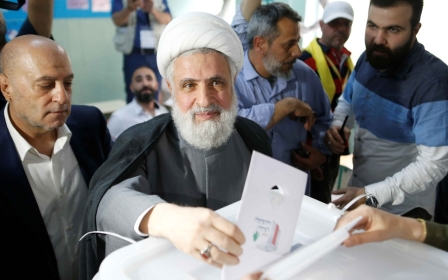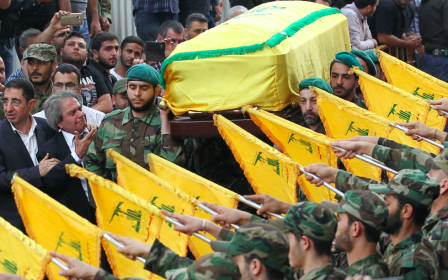Row over street named after Hezbollah commander accused in Hariri killing

The naming of a Beirut street after slain Hezbollah commander Mustafa Badreddine, who is accused of killing former Prime Minister Rafic Hariri, has caused a furore in Lebanon as the assassination trial draws to a close.
Badreddine, along with four other members of Hezbollah, was indicted by the Special Tribunal for Lebanon (STL) in the Hague, which was set up to investigate and prosecute those responsible for Hariri’s death.
Hariri was killed on the 14 February 2005 in a massive bombing on Beirut’s seafront that left 21 others dead.
The assassination rocked the country and led to protests that soon helped push the Syrian army out of Lebanon after a decades-long occupation.
The prosecution and defence teams at the tribunal have in recent days been making their closing arguments in a case that has dragged on far longer than intended.
On Monday, a statement from caretaker interior minister, Nohad Machnouk, who is a senior member in Hariri’s Future Movement, denied his ministry had approved the renaming.
The statement said the street’s name “threatened public approval” and said it would write to the municipality responsible asking for the new street signs to be removed.
The municipality in which the street lies, Ghobeiri, which is located in the Hezbollah-dominated southern suburbs of Beirut, defended its actions, calling the move “legal”.
In a statement released in response to Machnouk’s, the municipality said the decision to name the street after Badreddine was taken in June 2017 as a way of honouring the commander after he was killed in Syria the year before.
A key role
Badreddine, who was the cousin of infamous Hezbollah commander Imad Mughniyah, was killed in May 2016 by shelling on Damascus airport.
A senior figure in the Iranian-backed group, he is thought to have played a key role in Hezbollah’s operations in Syria fighting on behalf of President Bashar al-Assad.
Ghobeiri municipality said the decision to name the street after Badreddine was “legal and sound and lawful,” and in accordance with article 63 of the municipalities law, which “considers any decision authorised if the controlling authority does not take a decision on it within a month of [the street name's] registration at the ministry.”
It said the request it sent to the interior ministry to confirm the name change was unanswered.
With the name change coinciding with the conclusion of the tribunal, where the remaining four suspects are being tried in absentia, a Lebanese Twitter storm ensued.
Lebanon is currently in the midst of a political impasse, as its rival political blocs led by Hezbollah and the Future Movement struggle to come together in a national unity coalition government. Some speculated that this latest row could add to the political uncertainty.
All charges against Badreddine - who was jailed in Kuwait over bombings at the US and French embassies there but escaped during Iraq's 1990 invasion - were dropped when his death was confirmed.
New MEE newsletter: Jerusalem Dispatch
Sign up to get the latest insights and analysis on Israel-Palestine, alongside Turkey Unpacked and other MEE newsletters
Middle East Eye delivers independent and unrivalled coverage and analysis of the Middle East, North Africa and beyond. To learn more about republishing this content and the associated fees, please fill out this form. More about MEE can be found here.




